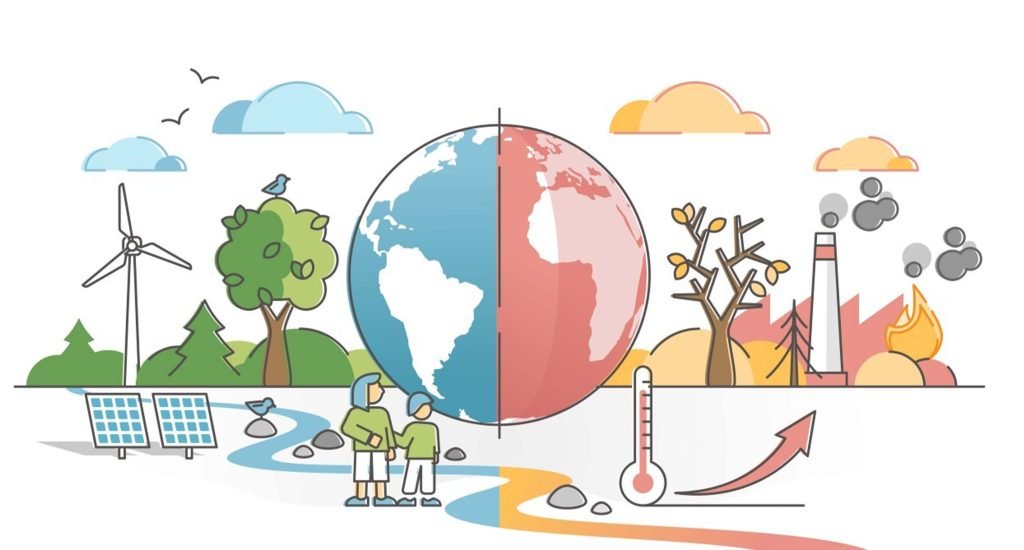The Price of Progress: Can Pakistan Grow Sustainably?
- Fahad Bin Khalid
- November 4, 2024
- 4:24 pm
- 27
- Current Affairs

In 1987, the UN Brundtland Commission defined sustainability as "meeting the needs of the present without compromising the future generations' ability to meet theirs." This simple yet profound idea has become a guiding principle worldwide. But for developing countries like Pakistan, is sustainable growth truly achievable? There, poverty alleviation and infrastructure development are crucial.
Pakistan's population exceeds 240 million and is growing fast. It faces great pressure to industrialize. Economic growth is necessary to create jobs, build infrastructure, and ensure energy security. However, recent events show that progress without environmental care has a high cost. In 2022, floods in Pakistan displaced millions and caused $30 billion in damage. These floods served as a stark reminder that the country is on the frontlines of climate change. Rising temperatures, melting glaciers, and erratic weather threaten Pakistan's agriculture. It is the backbone of its economy. This could devastate vulnerable communities.
While Pakistan contributes less than 1% to global carbon emissions, it is one of the top ten countries most affected by climate change. This shows the urgent need for a sustainable development model. It must meet Pakistan's economic needs without harming future generations. The challenge is clear: How can Pakistan progress without depleting its natural resources?
There is a strong temptation to use unsustainable practices. These include deforestation, unchecked urban expansion, and fossil fuels. These practices may yield quick economic gains. But, they risk harming the environment, polluting it, and causing water shortages. Pakistan's agricultural sector, which employs many, is facing water shortages. If unaddressed, these issues could hinder Pakistan's progress and harm future generations. Pakistan must focus on three things to be sustainable: renewable energy, climate-resilient infrastructure, and eco-friendly farming.
Encouragingly, the government has started some green initiatives. These include the Billion Tree Tsunami project and a greater focus on solar energy. However, these steps must be scaled up significantly to make a meaningful impact. To achieve lasting sustainability, international cooperation will also be crucial. Wealthier nations, the biggest contributors to global emissions, must support Pakistan's green transition. They should fund it, transfer technology, and build capacity.
Sustainability is not just a goal; it is essential for Pakistan’s survival. Economic growth is vital. But, it must be environmentally responsible to protect future generations. To ensure a prosperous future, Pakistan must balance progress with preserving the environment. The stakes are high, and the time to act is now.



